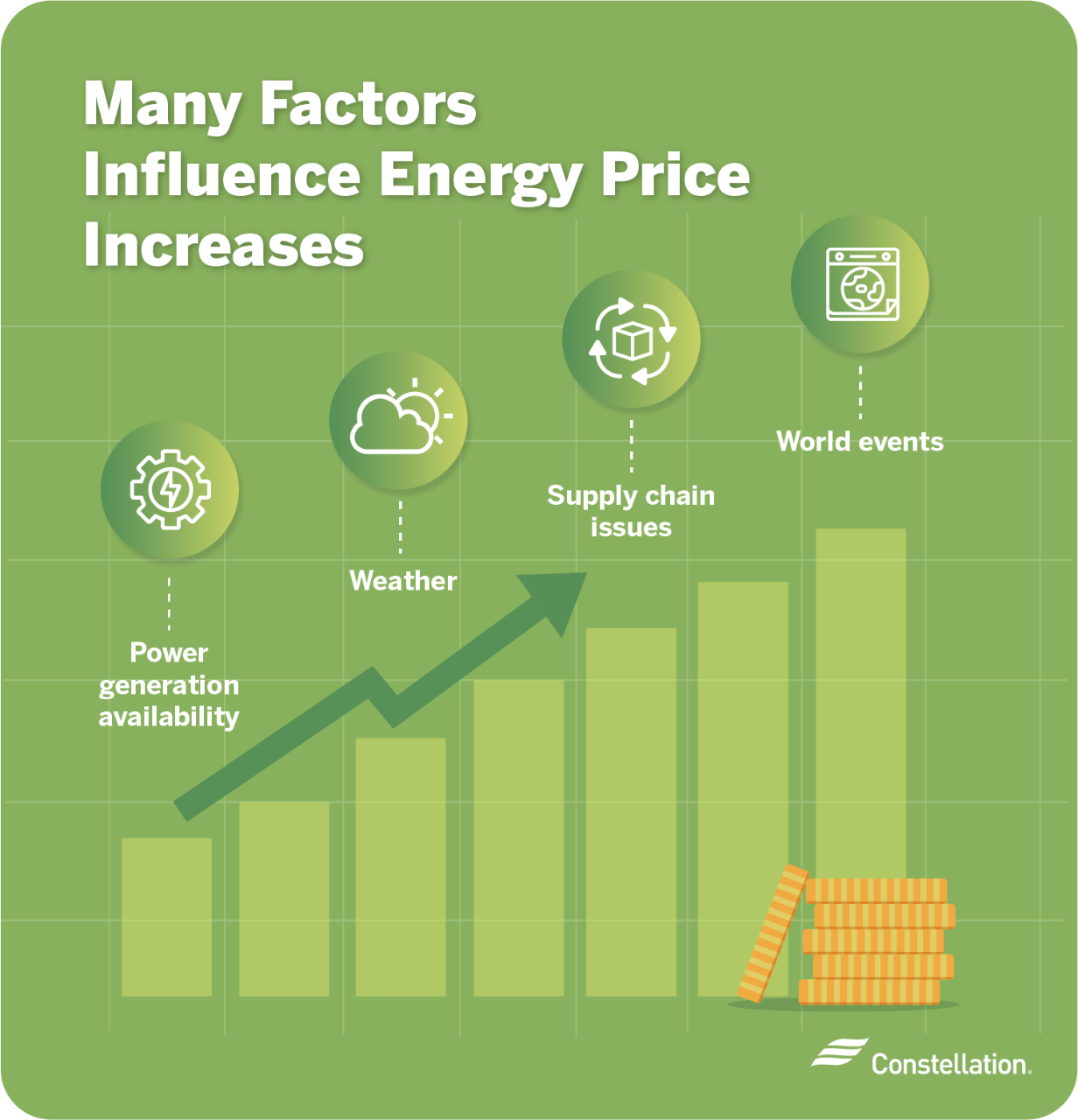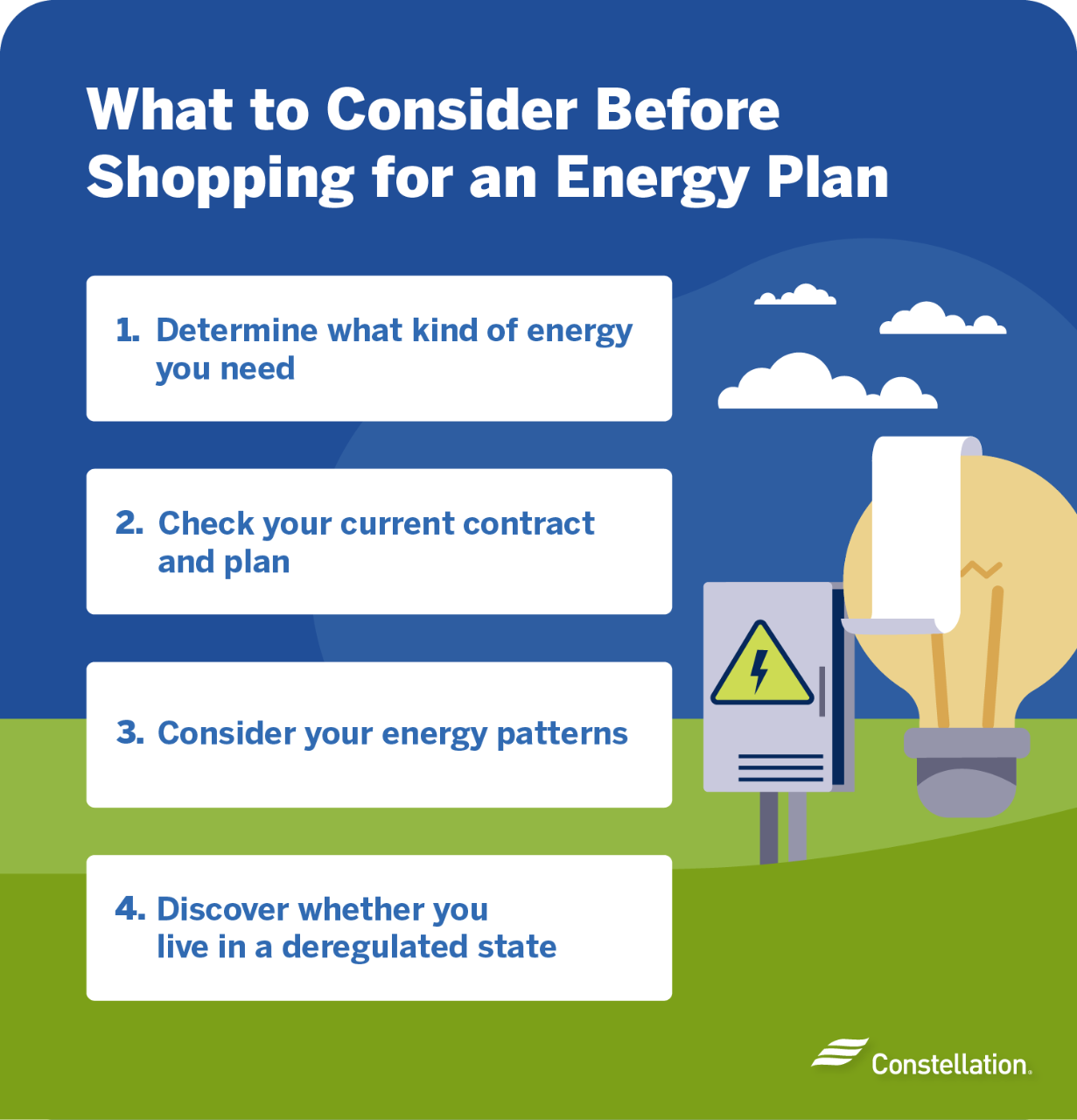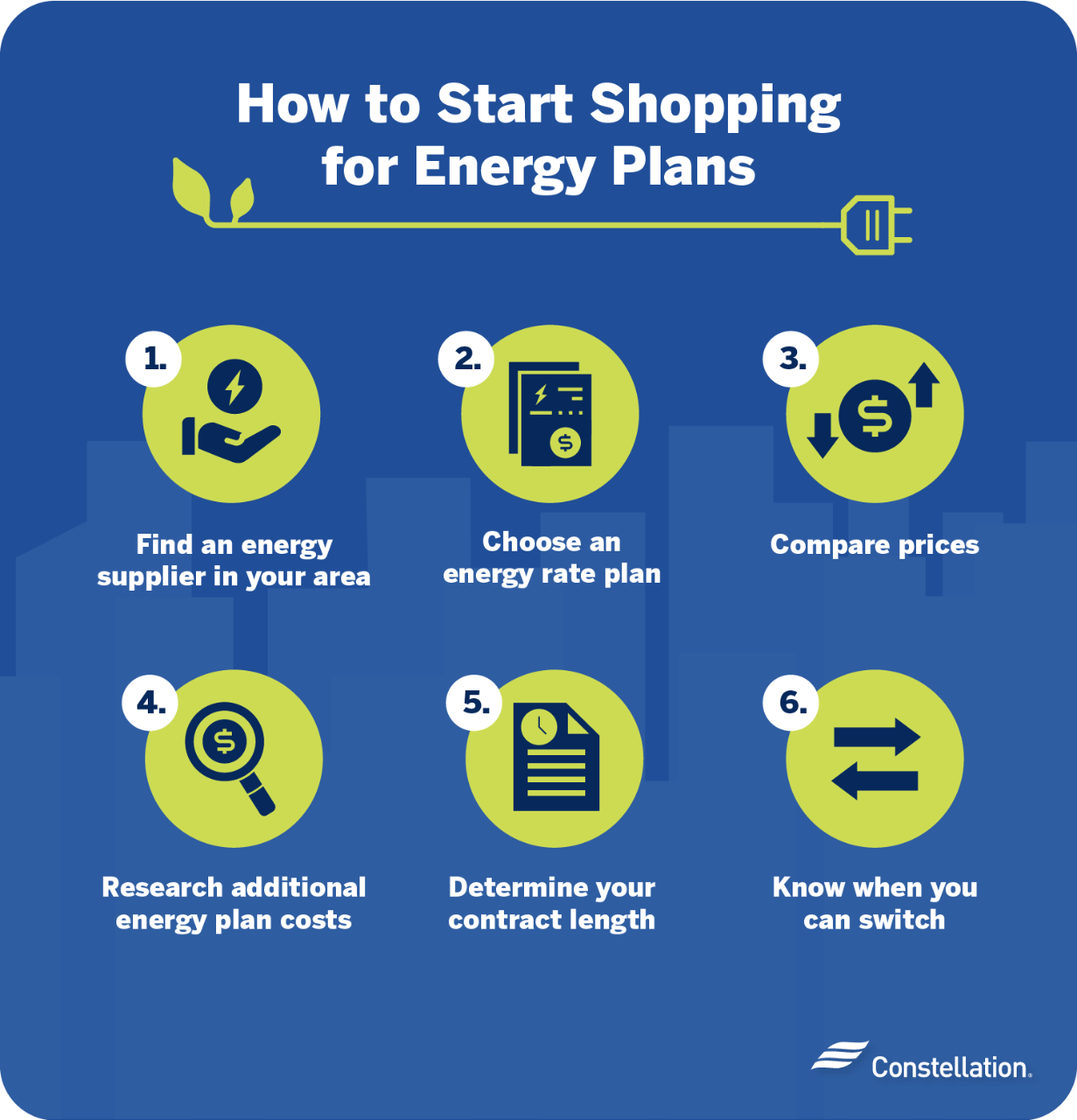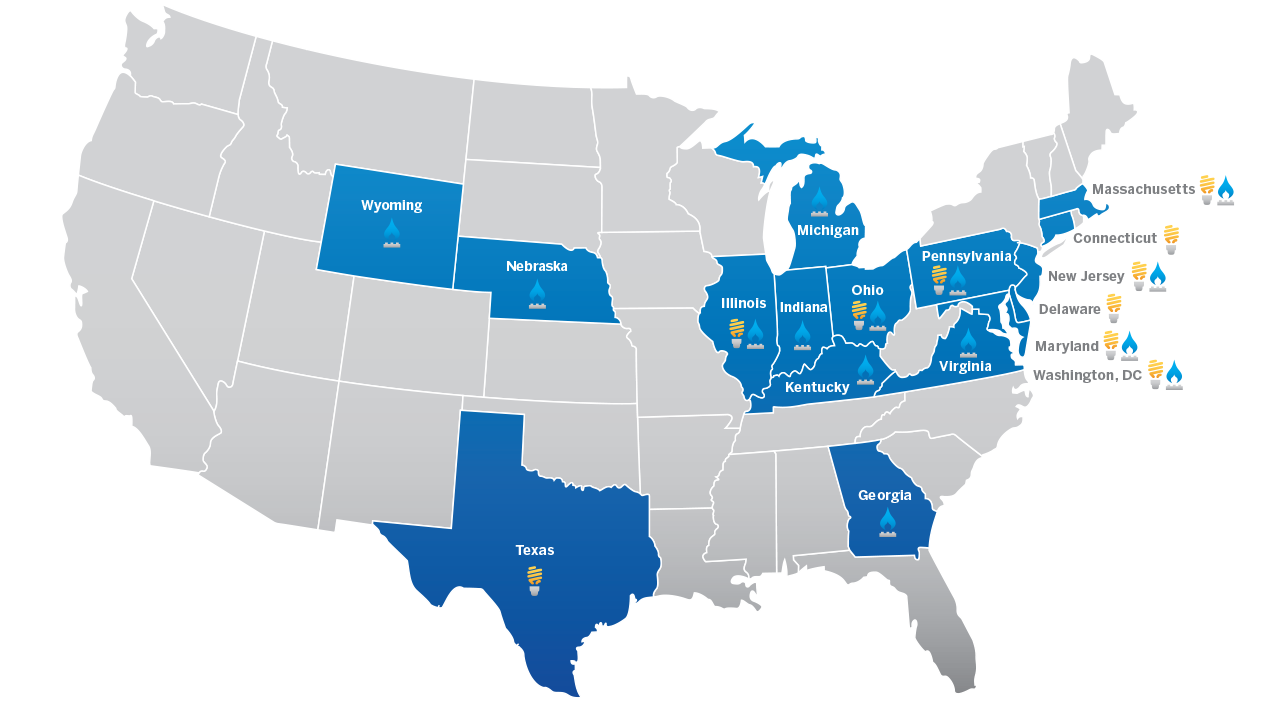2. Check your current contract and plan
Find past energy bills or go online to view your current utility or energy supplier contract. See what you’re currently paying per energy unit. This number is expressed as kWh for electricity and therm for natural gas usage. Learn how to read and calculate your energy bills.
When you know what you’re paying for energy currently, you can weigh that against alternatives when you shop for energy from other providers.
3. Consider your energy patterns
While you’re looking at your energy bill, pay attention to the times you’re consuming the most energy. Chances are, your energy usage fluctuates by season, the weekend vs. weekday, and perhaps day vs. night.
Your energy bill may also show you how your rates vary from month to month. This information can help you choose which kind of contract will work best for your home or business. With a variable-rate plan, you might not know what you’re paying for your energy units until the bill comes. With a fixed-rate plan, you know exactly the rate you’ll pay for each unit of energy you use.
Additionally, by adapting your energy consumption habits and practicing energy conservation, you will be able to bring down your monthly electricity or natural gas bill and contribute to a cleaner planet.
4. Discover whether you live in a deregulated state
Energy markets have been deregulated in many states, which allows for energy choice. This means you can choose to buy energy from one of several suppliers and you can choose what energy plan will work best for you.
Most states that have deregulated power markets for residents have also done the same for small businesses. New laws give these companies options for trimming their energy expenses. The following resource provides additional information about deregulation for small businesses.
















